Youth policy as viewed by BRICS Youth Assembly Conference participants
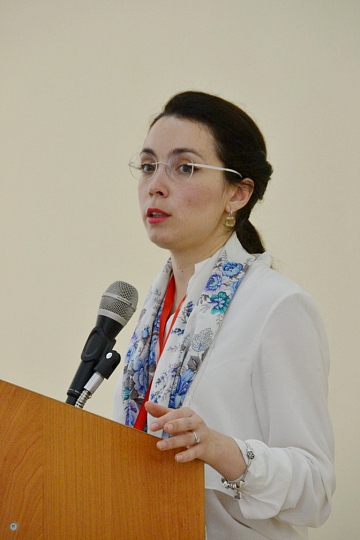 Presentation of BRICS youth policy took place on 24 June at Altai State University in the framework of BRICS Youth Assembly Conference. The event had an introductory and interactive format.
Presentation of BRICS youth policy took place on 24 June at Altai State University in the framework of BRICS Youth Assembly Conference. The event had an introductory and interactive format.
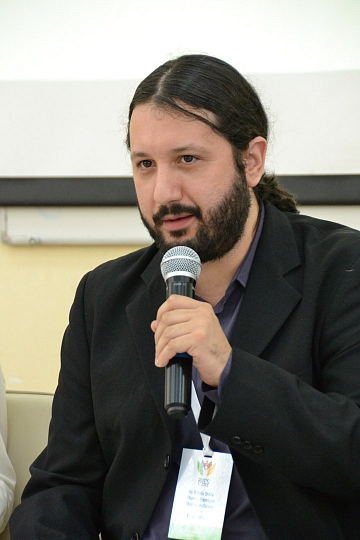 Vice chairman of the National Youth Council of Russia Lukiana I. Suvorova acted as a moderator. She told the participants about the peculiarities of Russian youth policy. Then Lukiana I. Suvorova invited five representatives of BRICS countries to the stage.
Vice chairman of the National Youth Council of Russia Lukiana I. Suvorova acted as a moderator. She told the participants about the peculiarities of Russian youth policy. Then Lukiana I. Suvorova invited five representatives of BRICS countries to the stage.
The young people shared the aspects of youth policy in Brazil, Russia, India, China and South Africa. Importantly, the discussion was fully carried out in English, which all the conference participants managed to speak fluently.
In particular, the participants considered the question “What challenges are there for collaboration between young people of BRICS?” in their five-sided dialogue. Guests from India Mohammad Akil and Caroline Maninee said that the problem l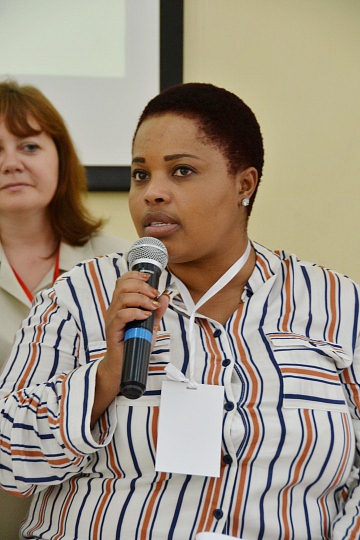 ied in the linguistic barrier and lack of knowledge about each other’s culture. Thus, Caroline Maninee pitifully noted that she was often mistaken for a Chinese. In reality, she is a typical representative of one of the Indian ethnic groups, this is why BRICS countries should know more about
ied in the linguistic barrier and lack of knowledge about each other’s culture. Thus, Caroline Maninee pitifully noted that she was often mistaken for a Chinese. In reality, she is a typical representative of one of the Indian ethnic groups, this is why BRICS countries should know more about 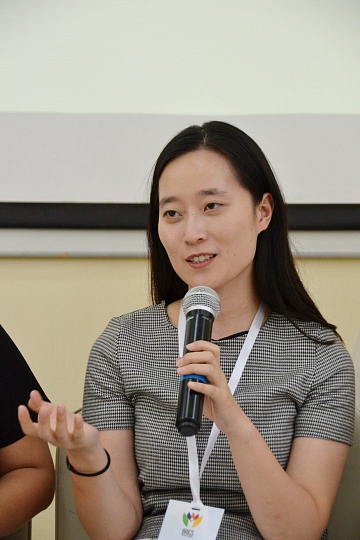 each other.
each other.
Thomas Henrique de Toledo Stella from Brasil fully agried with Caroline and provided some convincing examples: foreigners most often associate China with martial arts, India with yoga, Russia with the first human space flight and so on. In fact, every country represents a whole civilization, and it is wrong to narrow it down to one fact.
Dorothy Malefu Lebesa included the visa regime to the modern challenges. According to Dorothy, she had a firsthand knowledge, when she faced the problems after 12-hour flight from 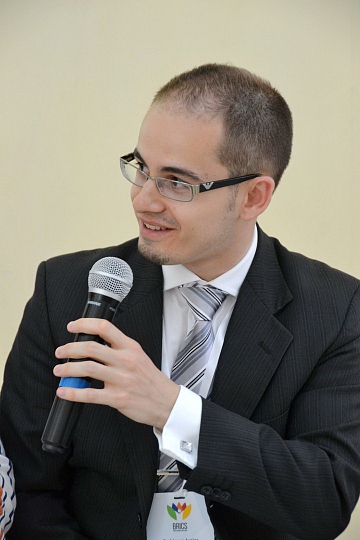 South Africa to Moscow. Dorothy believes that visas are a serious obstacle for cooperation between young people from BRICS countries.
South Africa to Moscow. Dorothy believes that visas are a serious obstacle for cooperation between young people from BRICS countries.
Ghe Deng from China drew participants’ attention to the necessity of realizing all the plans that were discussed at BRICS summits. Otherwise, the isea of such events will be lost.
Rodrigues Junior Danilo Ferreira from Moscow represented Russia at BRICS Youth Assemblu Conference. In his opinion, BRICS young people’s cooperation will become more dynamic, if academic mobility in our countries increases.
The participants’ constructive suggestions were highly appreciated by moderator Lukiana I. Suvorova. After the discussion, the participants proceeded to working at the workshops “Business Cooperation”, Student and Scientific Cooperation” and “Cultural and Humanitarian Cooperation”.